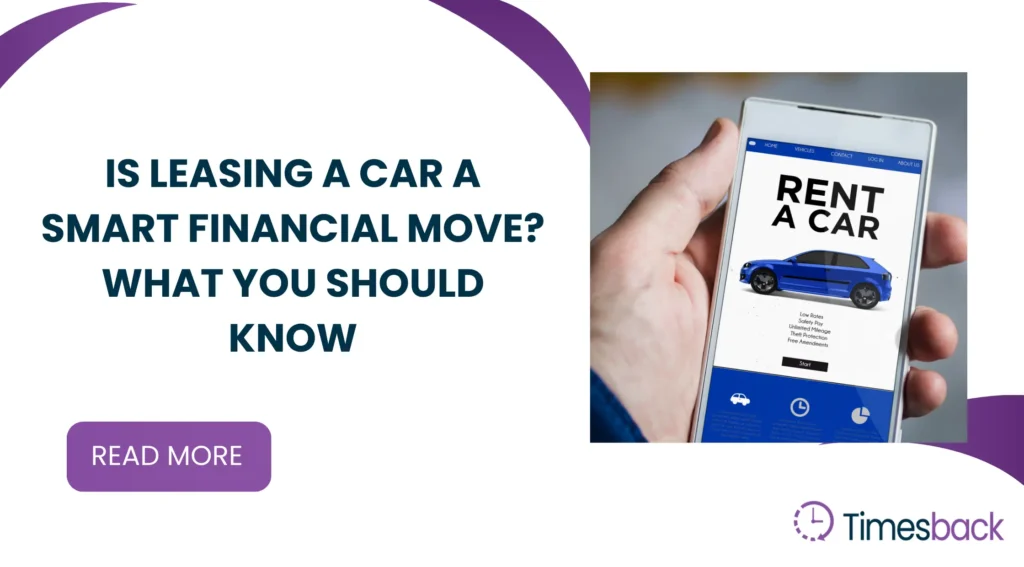租车是明智的理财选择吗?您应该了解哪些信息

租车 已成为传统汽车所有权的流行替代方案,带来了一系列独特的优势和挑战。
广告
有些人认为这是一个精明的财务决策,而另一些人则认为这可能是一个代价高昂的错误。
了解租赁的细微差别对于做出符合您生活方式和财务目标的明智选择至关重要。
租车的吸引力
与贷款购买相比,租赁可以让您以更低的月供享受到最新款的汽车。对许多人来说,这是一个主要优势。
广告
租赁车辆无需支付车辆的全部费用,而只需在租赁期内支付车辆的折旧费用,这使得豪华车更容易实现。
另一个好处是维护成本低。大多数租赁车辆在合同期内都享有保修,从而降低了意外维修费用的风险。
此外,每隔几年就能升级换购新车,确保了用户能够享受到最新的安全功能和技术。
此外,租赁为那些喜欢简单便捷的人士提供了便利。租赁合同通常包含服务套餐,涵盖基本保养,既节省时间,又能确保车辆始终保持良好状态。
这种便利性对于忙碌的专业人士或需要兼顾多项责任的家庭来说尤其具有吸引力。
然而,租赁并非没有缺点。你无法积累车辆的净值,这意味着租赁期满后你没有可以置换或出售的资产。
里程限制和磨损可能带来的处罚也会影响您的整体体验,尤其是如果您驾驶时间不规律的话。
了解这些限制对于避免在租赁期间出现挫折或意外费用至关重要。
财务考量:成本分析
在比较租赁和购买时,评估长期成本至关重要。虽然租赁通常前期付款较低,但长期来看,总支出可能超过拥有汽车的成本,尤其是在多次租赁的情况下。
凯利蓝皮书的一项研究发现,2023 年平均每月租赁付款额为 $516,而融资购买的平均每月付款额为 $716。
租赁也可能存在一些隐性成本,包括提前终止费用和超出里程限制的费用。
仔细做好预算并清楚了解租赁协议是避免意外情况的必要条件。
此外,承租人通常还面临强制性保险要求,这会增加每月支出。
另一个需要考虑的关键因素是车辆的残值。残值是指租赁期结束时车辆的预估价值,这会对月供产生显著影响。
较高的残值通常会导致较低的付款额,因此残值是签订合同前需要分析的关键因素。
对于重视灵活性或经常驾车的人来说,从长远来看,购买可能更经济。
另一方面,如果您优先考虑较低的月供,并且更喜欢每隔几年就开一辆新车,那么租赁可能更符合您的目标。
充分了解自己的财务优先事项后,对两种方案进行评估,将有助于您做出更明智的决定。
租赁与购买:对生活方式的影响
租车是否明智取决于您的生活方式。如果您喜欢拥有自己的车,或者计划经常开车旅行,那么购买车辆可以让您摆脱里程限制和租赁协议的束缚。
拥有车辆所有权意味着您可以不受限制地定制和改装您的车辆,这对于汽车爱好者来说很有吸引力。
对于那些优先考虑便利性和可预测性的人来说,租赁的结构化条款可以简化汽车拥有过程。
年轻的专业人士或驾驶习惯稳定的个人可能会觉得租赁车辆很有吸引力,因为它具有现代化的吸引力,而且维护需求较低。
租赁还可以消除转售的压力,因为您只需在合同结束时归还车辆即可。
另一个需要考虑的生活方式因素是您的驾驶环境。城市居民可能更适合租赁专为城市生活设计的紧凑型、节能型车型,而乡村驾驶员则可能觉得拥有一辆耐用的车辆更为实用。
通过让你的选择与你的日常需求保持一致,你可以最大限度地获得经济和个人满足感。
此外,考虑环境因素也很重要。租赁通常能让你使用更新、更节能的车型,长期来看可以减少你的碳足迹。
随着汽车行业向电动汽车转型,这一点尤为重要。
随着绿色科技的进步,租赁可以提供一种可持续的选择,而无需长期承诺。
租赁之外的替代方案:探索其他选择
在决定租赁汽车之前,务必考虑其他可能更符合您的财务和个人目标的替代方案。
另一种选择是购买经过认证的二手车。这些车辆通常带有保修,并且经过严格的检验,与新车相比,它们既可靠又经济实惠。
另一种新兴选择是汽车订阅服务。这些服务允许你按月支付费用,即可使用各种车辆,通常还包括维护和保险。
虽然通常比租赁更贵,但对于那些不想长期拥有一辆车的人来说,它们提供了无可比拟的灵活性。
拼车平台或公共交通也可能是可行的替代方案,尤其对于居住在城市地区的人们而言。
通过依靠这些选择,您可以完全消除与拥有或租赁汽车相关的费用,从而腾出资源用于其他财务优先事项。
对于那些驾驶需求难以预测的人来说,像 Zipcar 这样的短期租赁或汽车共享服务可以提供车辆,而无需受到租赁或购买的限制。
这些替代方案凸显了根据自身情况和目标量身定制交通运输策略的重要性。
租赁前的关键要点
在决定租赁车辆之前,请务必全面分析您的财务状况和驾驶习惯。研究其他竞争报价,并确保条款符合您的需求。
将租赁合同规定的年度里程限额与您的驾驶习惯进行比较,以避免产生过高的费用。
不要忽视租赁条款谈判的重要性。诸如残值、资金系数(利率)和前期费用等因素在不同的经销商处可能存在显著差异。
明智的谈判可以在租赁期内节省数百美元。
最后,权衡一下租赁与其他替代方案,例如购买认证二手车或探索订阅服务。
每种选择都有其独特的优势,可能更符合您的财务需求。
在更广泛的财务目标背景下评估您的交通需求,可确保您在租赁、购买或寻求其他替代方案方面的决定既能带来短期便利,又能实现长期成功。
通过采取策略性的方法,您可以自信地选择最适合您情况的路径。
结论
租车 对于某些人来说,这可能是一个明智的理财选择,尤其是那些寻求灵活性、较低月付款额以及使用最新功能的人。
然而,租赁并非万能的解决方案。仔细评估您的财务目标、驾驶习惯和长期规划,将有助于确定租赁是否是您的最佳选择。
随着财务决策越来越依赖于个性化,在租赁或购买汽车时做出明智的战略选择,可以确保您的交通方式与您更广泛的财务目标保持一致。
